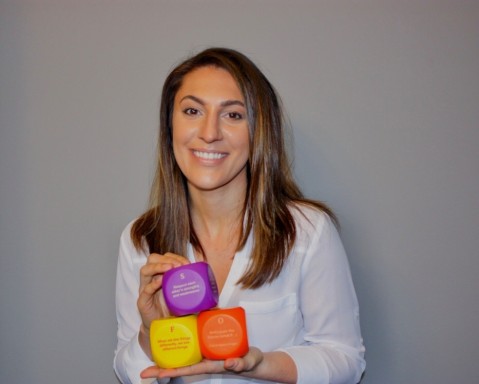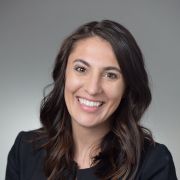It is 5 pm on a Friday in the pre-doctoral dental clinic at your institution. A procedure has taken 5 hours, when it seemingly could have taken 90 minutes. Frustrated and exhausted, the student cannot seem to apply the content that they have learned in the classroom into real life. As an instructor you can’t help but think “What could we, as dental educators, have done to prevent this?”
In the summer of 2018, I met Dr. Robert Wright at the West East Institute (WEI) academic conference in Cambridge, MA. Robert is a professor of strategy at the Hong Kong Polytechnic University and is a multi-award-winning educator and researcher with over 30 year’s experience educating the next generation of thought-leaders. He presented a playful pedagogical innovation, the F.O.C.U.S.E.D dice, he created which recently received a 3-year government grant of $HK9.7M. His research on this framework helped identify concrete ways I could make my impact on dental education! So, we connected and I invited him for a tour of our Harvard Dental School. Before beginning the tour, he presented me a gift of his invention: my very first box-set of the F.O.C.U.S.E.D dice.
This gift was the answer to the question of any dental educator, including a young educator like myself. Often in dental education we present and test factual information in our didactic curriculum through a lecture format, an example is this article on teaching evidence based practice. We are constantly trying to find and adopt pedagogies that create near authentic learning experiences. The real test is applying and adapting that knowledge to each individual patient experience, clinical case, or ethical scenario that students face in their careers. The F.O.C.U.S.E.D framework is an innovative pedagogy developed to help students (and practitioners) open up the alternatives to complex unsolved problems, issues and challenges in their careers.
What is the F.O.C.U.S.E.D framework?
The idea of having a framework to solve challenges - such as access to care - in the field of dentistry sparked my interest. My brain started to spill with lesson plans where we could use this pedagogy to approach unsolved problems in public policy, ethics, and research. This pedagogy helps students across disciplines including management, medicine, law, engineering and education, “learn better, learn faster, and learn more” than they are currently used to. Each of the F.O.C.U.S.E.D dice represent a competency that is desired in real world problem solving (and problem-setting):
F – Bring FRESH perspective
O –Think, feel and act like an OWNER / manager
C – Show CONNECTED-thinking
U – Have a sense of URGENCY
S – Show team SPIRIT
E – Always ENGAGE
D – Exercise DELIBERATE practice
On each dice there are six (6) statements / prompts or questions that help the student work through that competency. Please click on this link for a more detailed elaboration of the meaning of each item within the F.O.C.U.S.E.D framework.
How you can use it?
FIRST think of a really tough UNSOVLED problem, issue, or challenge. In small groups of two to four students, roll all seven F.O.C.U.S.E.D framework dice and pick up one of the dice to start. Read aloud the item that faces up; think about it for a moment, then discuss it. Then, continue the process, until you have read and discussed one statement from all seven dice. Repeat this process as many items it takes for you to begin to open up the alternatives to your unsolved challenge. After the small groups have time to share, an instructor or facilitator can debrief the group. When students have practiced this framework a few times, they can then apply it to their own individual challenges. It’s a mind-blowing experience!
A simple example will help you see how the framework encourages diversity of thought (differentiation) and connection of ideas (integration), thereby opening us as educators and learners to new ideas. Opening our minds to a different perspective is sometimes challenging, yet the F.O.C.U.S.E.D framework provides a safe anchor which guides and stimulates both educator and learner HOW to think about complex challenges.

Sample F.O.C.U.S.E.D. Scenario:
You are the dean of a dental school that has more third year dental students than they have clinic operatories. Students are not able to be in the clinic every morning and afternoon. How would you increase their clinic time?
You decide to use the F.O.C.U.S.E.D framework to help you brainstorm alternatives. You roll the seven dice and pick up the “D” dice (Deliberate Practice) and the question pops up “What are we NOT doing now that we should be doing?” As a dean of your advisory committee you could think about the activities that you should be doing to offer students maximum clinic time. Perhaps that means pulling in a community rotation site for third year students, pairing them up with fourth year students who are in clinics, or even creating more clinic session runs into evening hours. You can continue to roll each of the dice and continue to generate new ideas and thoughts about your dilemma. The ideas here are limitless, however, it’s a great example of how it can prompt educators to think differently. Just as an item printed on the “F” dice (Fresh Perspective) states, “When we see things differently, we see different things. ”
F.O.C.U.S.E.D. Application:
Oral health policy is riddled with complex systems and emerging issues, as such we need something more to help our students. Along with my mentor Dr. Chester Douglass, we applied F.O.C.U.S.E.D to our oral health policy course at the Harvard School of Dental Medicine (HSDM). We gave our our pre- doctoral dental students and post-doctoral dental residents a small case vignette (a complex problem) and an introduction to the F.O.C.U.S.E.D framework to read prior to class. We set the scene at the beginning of class and immediately broke out into discussion groups to use the F.O.C.U.S.E.D framework. Key ideas generated from each dice were recorded on post-it notes and later pinned under the letters “F.O.C.U.S.E.D.” written on the white board. At the end of class I acted as the facilitator to help the learners debrief the case as a large group. Their responses revealed thought-provoking and insightful alternatives generated with the help of the F.O.C.U.S.E.D framework.
Looking back on my experience as a facilitator during the 16-week course, the students were more engaged while using the F.O.C.U.S.E.D Framework. We had students who were initially resistant to class participation that completely embraced this pedagogy. I challenge you to think of your last dilemma, and have confidence that you now have a framework that can help your students ask better questions and, in the process, generate better answers.
Where to find it?
When you are faced with a really tough UNSOLVED problem, issue or challenge, consider trying the Prototype F.O.C.U.S.E.D framework PC e-version or download an early prototype (free) APP by searching “focused dice” in the Apple Store / Android Google Play Store.
Health professions education is filled with challenges and opportunities to be (re)discovered. What complexities are your students facing today where the F.O.C.U.S.E.D framework can be put to good use?
Erinne Kennedy

Erinne Kennedy, DMD MPH (Leaders ’18; Educators, ’19) is a public health dentist studying dental education at the Harvard School of Dental Medicine. Erinne’s areas of professional interest include innovative teaching pedagogies, faculty burnout and wellness, and effective training for oral health providers. Erinne can be followed on LinkedIn, Facebook, and/or email.

